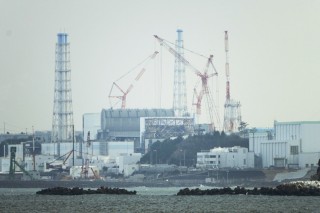Loading
Search
▼ Hacker Group Attacks Japan Nuclear Websites Over Fukushima Water Release Plan
- Category:Other
International hacker group Anonymous has launched cyberattacks against nuclear power-linked groups in Japan in protest at the planned release of treated radioactive water from the crippled Fukushima nuclear plant into the sea, a Japanese IT security firm said.
Anonymous has been intensifying its cyber offensives since last month, shortly after the International Atomic Energy Agency said in its final report that the planned discharge would comply with global safety standards, NTT Security Japan said.
"Vigilance is needed, as the attacks could further escalate after the discharge," a representative of the Tokyo-based firm said.
The organizations targeted by the international hacktivist group are the Japan Atomic Energy Agency, Japan Atomic Power Co and the Atomic Energy Society of Japan.
Anonymous have carried out distributed denial-of-service, or DDoS attacks, in which networks are overwhelmed by hackers who unleash a flood of data from multiple sources over a short period, with the assault being led by a group based in Italy.
Activities by a group based in Vietnam have also been confirmed, NTT Security said.
The Japan Atomic Energy Agency said its website saw about 100 times more than its usual traffic, but users could continue browsing the site as it took countermeasures.
According to NTT Security, Anonymous released a "target list" of its attacks after the Japanese government formally decided in 2021 to release treated water from Tokyo Electric Power Company Holdings Inc.'s Fukushima Daiichi nuclear power plant.
In addition to the three nuclear power-related organizations, TEPCO, the Ministry of Economy, Trade and Industry and the Liberal Democratic Party were on the list, NTT Security said.
A member of Anonymous told Kyodo News recently that the Japanese government's policy to release treated water lacks transparency as citizens were not able to participate in its decision-making process.
"We must put an end to the senseless act of making the sea a dumping ground for economic benefit," the member said.
Meanwhile, a company named Nippon Weston Co., which is not related to nuclear power, also came under attack from Anonymous, which apparently mistook its website, www.weston.co.jp, for one operated by a government entity in western Japan.
The company, which among other things leases cloths used for industrial cleaning, said it was not impacted by the attack.
Massive amounts of contaminated water have been generated in the process of cooling melted reactor fuel after the Fukushima plant was devastated by the 2011 earthquake and tsunami.
The water has been kept in tanks after going through the advanced liquid processing system that removes most radionuclides except tritium, but the storage vessels are nearing capacity. Tritium is known to be less harmful than other radioactive materials, such as cesium and strontium.
Local fishermen and some neighboring countries remain opposed to the plan, with China introducing blanket radiation testing on Japanese seafood.
© KYODO
Anonymous has been intensifying its cyber offensives since last month, shortly after the International Atomic Energy Agency said in its final report that the planned discharge would comply with global safety standards, NTT Security Japan said.
"Vigilance is needed, as the attacks could further escalate after the discharge," a representative of the Tokyo-based firm said.
The organizations targeted by the international hacktivist group are the Japan Atomic Energy Agency, Japan Atomic Power Co and the Atomic Energy Society of Japan.
Anonymous have carried out distributed denial-of-service, or DDoS attacks, in which networks are overwhelmed by hackers who unleash a flood of data from multiple sources over a short period, with the assault being led by a group based in Italy.
Activities by a group based in Vietnam have also been confirmed, NTT Security said.
The Japan Atomic Energy Agency said its website saw about 100 times more than its usual traffic, but users could continue browsing the site as it took countermeasures.
According to NTT Security, Anonymous released a "target list" of its attacks after the Japanese government formally decided in 2021 to release treated water from Tokyo Electric Power Company Holdings Inc.'s Fukushima Daiichi nuclear power plant.
In addition to the three nuclear power-related organizations, TEPCO, the Ministry of Economy, Trade and Industry and the Liberal Democratic Party were on the list, NTT Security said.
A member of Anonymous told Kyodo News recently that the Japanese government's policy to release treated water lacks transparency as citizens were not able to participate in its decision-making process.
"We must put an end to the senseless act of making the sea a dumping ground for economic benefit," the member said.
Meanwhile, a company named Nippon Weston Co., which is not related to nuclear power, also came under attack from Anonymous, which apparently mistook its website, www.weston.co.jp, for one operated by a government entity in western Japan.
The company, which among other things leases cloths used for industrial cleaning, said it was not impacted by the attack.
Massive amounts of contaminated water have been generated in the process of cooling melted reactor fuel after the Fukushima plant was devastated by the 2011 earthquake and tsunami.
The water has been kept in tanks after going through the advanced liquid processing system that removes most radionuclides except tritium, but the storage vessels are nearing capacity. Tritium is known to be less harmful than other radioactive materials, such as cesium and strontium.
Local fishermen and some neighboring countries remain opposed to the plan, with China introducing blanket radiation testing on Japanese seafood.
© KYODO
- August 18, 2023
- Comment (0)
- Trackback(0)


